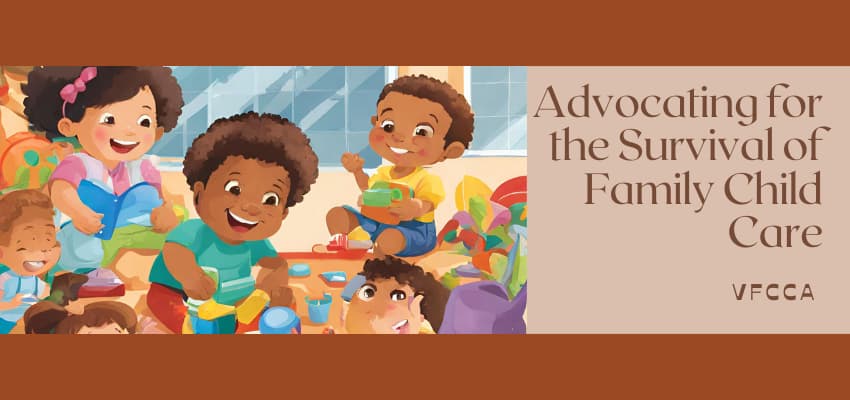
The Unintended Consequences of Universal Prekindergarten (UPK) and Transitional Kindergarten (TK) Implementation on Child Care Providers: Advocating for the Survival of Family Child Care
In the dynamic landscape of early childhood education, the advent of Universal Prekindergarten (UPK) and Transitional Kindergarten (TK) programs has garnered considerable attention. While these initiatives aim to enhance educational opportunities for young learners, the potential ramifications on family child care providers cannot be ignored. The Association of Valley Family Child Care Providers (VFCCA) in Alameda County is spearheading a fervent advocacy effort to shed light on the unintended consequences that UPK and TK implementation might bring upon the child care community. With a history of resilience marked by weathering the storm of the COVID-19 pandemic, the association now faces a new challenge: safeguarding the very survival of the family child care industry.
The COVID-19 pandemic acted as a crucible for the child care sector, resulting in the unfortunate closure of nearly 50 percent of child care providers in the Alameda County area. These closures exposed the fragility of the industry and its vulnerability to external shocks. As the association now confronts the specter of UPK and TK implementation, an additional 20 percent of providers are projected to be pushed out of the market. This impending toll casts a dark shadow over the once-vibrant landscape of family child care.
The government’s well-intentioned drive towards implementing UPK and TK stems from the aspiration to provide universal access to high-quality early education. However, the path to achieving this noble goal inadvertently intersects with family child care providers, potentially jeopardizing their existence. As UPK and TK programs expand their reach, families may opt for these government-funded alternatives, causing a decline in enrollment for family child care providers. The unintended consequence is the destabilization of a sector that has long been a cornerstone of early education.
VFCCA recognizes that the push for UPK and TK programs is driven by a commitment to educational equity. However, their advocacy efforts center around the critical need to strike a balance between advancing educational accessibility and preserving a rich ecosystem of child care providers. They contend that the unique benefits offered by family child care providers—personalized attention, a nurturing environment, and a sense of community—cannot be fully replicated in larger institutional settings.
Moreover, the association underscores the economic ramifications of a dwindling family child care industry. These providers are not just educators; they are small business owners who contribute significantly to the local economy. Their closures would result in job losses, impacting the livelihoods of not just the providers themselves but also the support staff they employ. The ripple effect extends further to local suppliers, who rely on these providers for various services.
As the advocacy efforts gain momentum, VFCCA envisions a collaborative dialogue between the government and the child care community. They seek to ensure that the voice of family child care providers is heard at the highest levels, enabling policymakers to make informed decisions that take into account the unique challenges faced by this sector. The association emphasizes that proactive engagement can lead to solutions that align the goals of educational expansion with the preservation of a diverse early education landscape.
“TK’s effect on our child care is distressing. We’ve lost two kids, and two more are about to leave. This impacts our business and the nurturing environment we’ve built. We urge policymakers to protect our role in early education and prevent further disruptions to our children’s care and development.” – said Jagdeep Gupta, Owner of Steps Insight Child Care, Dublin
While the intentions behind UPK and TK are laudable, their implementation should not come at the cost of an industry that has long been an integral part of the educational tapestry. VFCCA serves as a beacon of hope, striving to ensure that the concerns of child care providers are not overshadowed in the pursuit of universal education. By advocating for sustainable solutions and fostering a spirit of collaboration, the association aims to navigate the delicate balance between accessible education and the preservation of a vital industry.
“As a family child care provider, I stayed open throughout the pandemic without considering closing. However, with the introduction of UPK/TK in my school district, my enrollment dropped by half, forcing me to lay off staff. If this trend continues, I may have to shut down my daycare and seek a new career. The state should focus on strengthening the existing ECE system rather than pushing providers like me to seek other opportunities,” said Shruti Agarwal, owner of Shruti’s Family Daycare in Livermore.
In conclusion, the advocacy efforts of VFCCA shed light on a critical dilemma posed by the implementation of Universal Prekindergarten and Transitional Kindergarten programs. While the aspiration for universal education is commendable, the unintended consequences on the family child care community must not be ignored. Through tireless advocacy, collaborative dialogue, and a commitment to finding balanced solutions, the association strives to secure the future of family child care providers and ensure that the rich tapestry of early education remains intact for generations to come.





